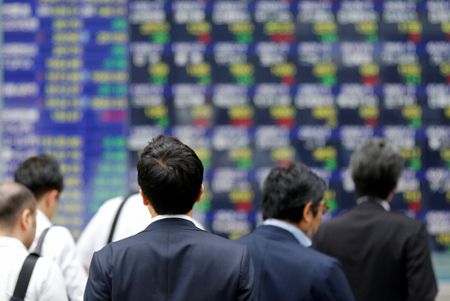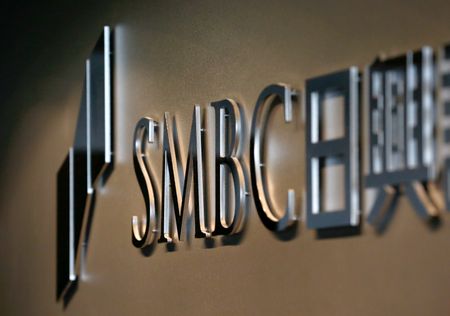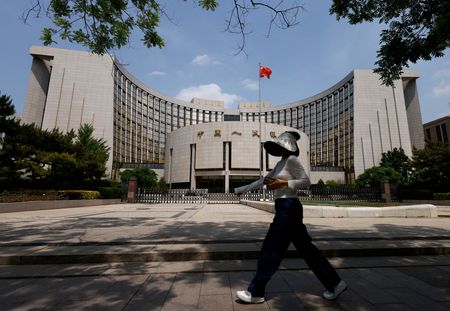TOKYO (Reuters) -Japanese real wages decreased for a third consecutive month in March, squeezed by relentless inflation although consumer spending beat expectations, government data showed on Friday.
The mixed wage and spending data highlights Japan’s challenging growth outlook, as the export-reliant economy faces tariff threats and uncertainty over monetary policy. Economists are expecting to see a contraction in first-quarter gross domestic product next week.
Inflation-adjusted real wages, a key determinant of households’ purchasing power, dropped 2.1% in March from a year earlier following a revised 1.5% fall in February and a 2.8% decline in January, labour ministry data showed.
The consumer inflation rate the ministry uses to calculate real wages, which includes fresh food prices but not rent costs, rose 4.2% year-on-year in March, easing slightly from February’s 4.3% gain but still elevated due to rising food costs.
Regular pay, or base salary, grew 1.3% in March, the same pace as in February after a downward revision. But overtime pay fell 1.1%, following February’s revised 2.4% growth, indicating a potential softening in business activity.
It marked the first dip in overtime pay since September, and the decrease was the sharpest since April last year.
Total average cash earnings, or nominal pay, increased 2.1% to 308,572 yen ($2,132) in March, which was slower than a revised 2.7% rise in the previous month.
In March, major Japanese firms on average agreed to more than 5% pay hikes during annual spring wage talks, but the effect of such raises typically begins to show up in the government’s wage data for April or later.
“Looking ahead, real wages would likely move in positive territory,” said Masato Koike, senior economist at Sompo Institute Plus, adding lower oil prices and a stronger yen will put downward pressure on import prices and keep inflation under control.
At the same time, Koike said a global economic slowdown from U.S. tariffs could risk stalling wage hike momentum.
Meanwhile, separate internal affairs ministry data showed Japan’s household spending rose 2.1% from a year earlier, much better than the median market forecast for a 0.2% uptick.
On a seasonally adjusted, month-on-month basis, spending rose 0.4%, versus an estimated 0.5% decline.
An internal affairs ministry official said increases in utilities and entertainment spending had pushed up overall figures, adding there were signs consumption had picked up in recent months.
The official, though, said consumers were still cutting spending on food items because of higher prices.
“Real wages are expected to improve, but it is difficult to imagine a significant increase in consumption in the face of increasing uncertainty” like tariffs, Koike of Sompo Institute Plus said.
($1 = 144.7500 yen)
(Reporting by Kantaro Komiya; Additional reporting by Satoshi Sugiyama; Editing by Andrew Heavens and Sam Holmes)








